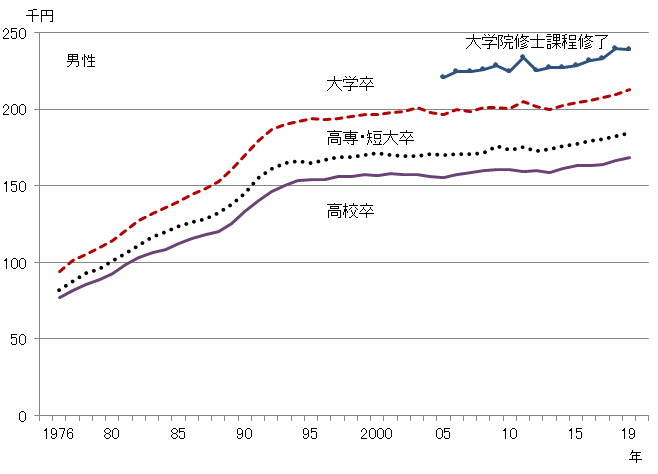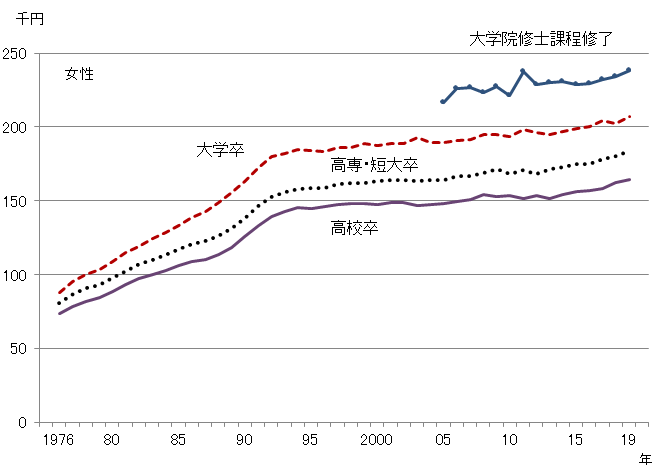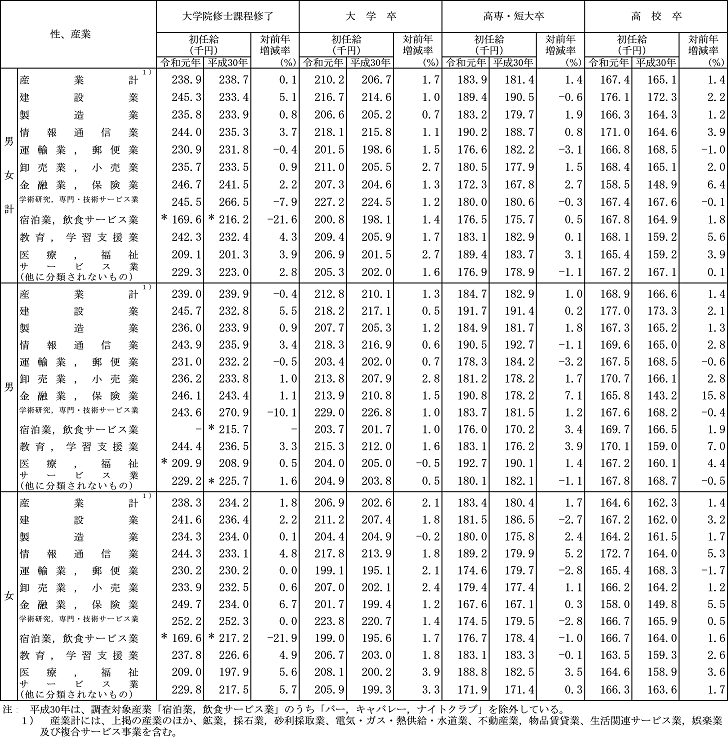Starting salary for university graduates
New grads and mass recruitment in Japan
Are you a new grad thinking about working in Japan? Or are you someone who is still in college and has no idea how the Japanese new grad hiring system works? Are you unsure about how to start your job hunting process in Japan? We previously wrote an article about, how the Japanese job-hunting system works and mapped out the annual schedule for the recruitment process by companies in Japan. If you are interested in learning more about it, you check out this article.
【2021】Job hunting schedule for new grads in Japan
In this article, we will explain how much newly graduated university students get paid in Japan, and you can learn about the salary of individual companies.
How much do you get paid as a new grad in japan?
In Japan, it is extremely rare for a new graduate to negotiate the annual compensation, and it is usually decided completely by the company. According to a statistic released by The Japan Institute for Labour Policy and Training, the monthly salary for men’s college graduates in 2019 was ¥212,800. On the other hand, the monthly salary for women’s college graduates in 2019 was ¥206,900. This does not include bonuses or overtime work salaries. It is based on the normally scheduled working hours, and the data was taken from the “Basic Survey on Wage Structure” of the Ministry of Health, Labour, and Welfare.
The trend of average monthly salary for new graduates
The graph below shows the transition of monthly salary for new graduates in Japan.
(Blue line: Graduate school, Red line: University, Black line: Technical colleges and junior colleges, Purple line: Highschool)


If you look at the graph above, you can see that there is a gradual increase in monthly salary in both men and women. It is estimated that this trend will continue and that the monthly salary will keep on increasing.
Starting Salary by industries in Japan
Statistics of starting salary by industry
In the graph below, you can see the change in the percentage of the starting monthly salary between 2019 and 2018. According to the Ministry of Health, Labour and Welfare, the increased percentage in pay for college graduates was a plus of 1.7%. This increase is covering all industries in Japan. We will look deeply into specific industries in the following section.

Looking into the salary for each industry
Let’s look into how much a college graduate will make in different industries in Japan.
Here’s a list of how much university graduates will make in Japan. (by industry)
Construction
Men: ¥218,200 Women: ¥211,200
Manufacturing
Men: ¥207,700 Women: ¥204,400
Information and Communication
Men: ¥218,300 Women: ¥217,800
Transportation and Postal Services
Men: ¥203,400 Women: ¥199,100
Wholesale and Retail
Men: ¥213,800 Women: ¥207,000
Finance and Insurance
Men: ¥213,900 Women: ¥201,700
Academic Research, Professional and Technical Services
Men: ¥229,000 Women: ¥223,800
Accommodation and Food Services
Men: ¥203,700 Women: ¥199,000
Education and Learning Support
Men: ¥215,300 Women: ¥206,700
Healthcare and welfare
Men: ¥204,000 Women: ¥208,100
(Not elsewhere classified)
Men: ¥204,900 Women: ¥205,900
The reality of the annual merit sequence system in Japan
In Japan, there is a unique system called the annual merit sequence system. (年功序列) This basically means the employees’ salary will increase according to the year they have worked at the company. Therefore, in most Japanese companies, the salary will go up if you stay longer at the same company. A mega venture or a startup may not have the same system, but at least for a traditional Japanese company, there is a minimum bonus for good performance.
When looking at the starting salary for a Traditional Japanese company, you cannot just look at the monthly salary itself. You must look at the benefits and the average salary for different age groups as well. This is because, unlike foreign companies, Japanese companies do not have the concept of total compensation, but will try and give you a lot of benefits by welfare, housing support, after-hour work bonuses, and many other ways.
Therefore, if you were thinking of turning down an offer by a Japanese company because the starting salary is too low, you should at least check again if the compensation would be higher when accounting for all the factors stated above.












